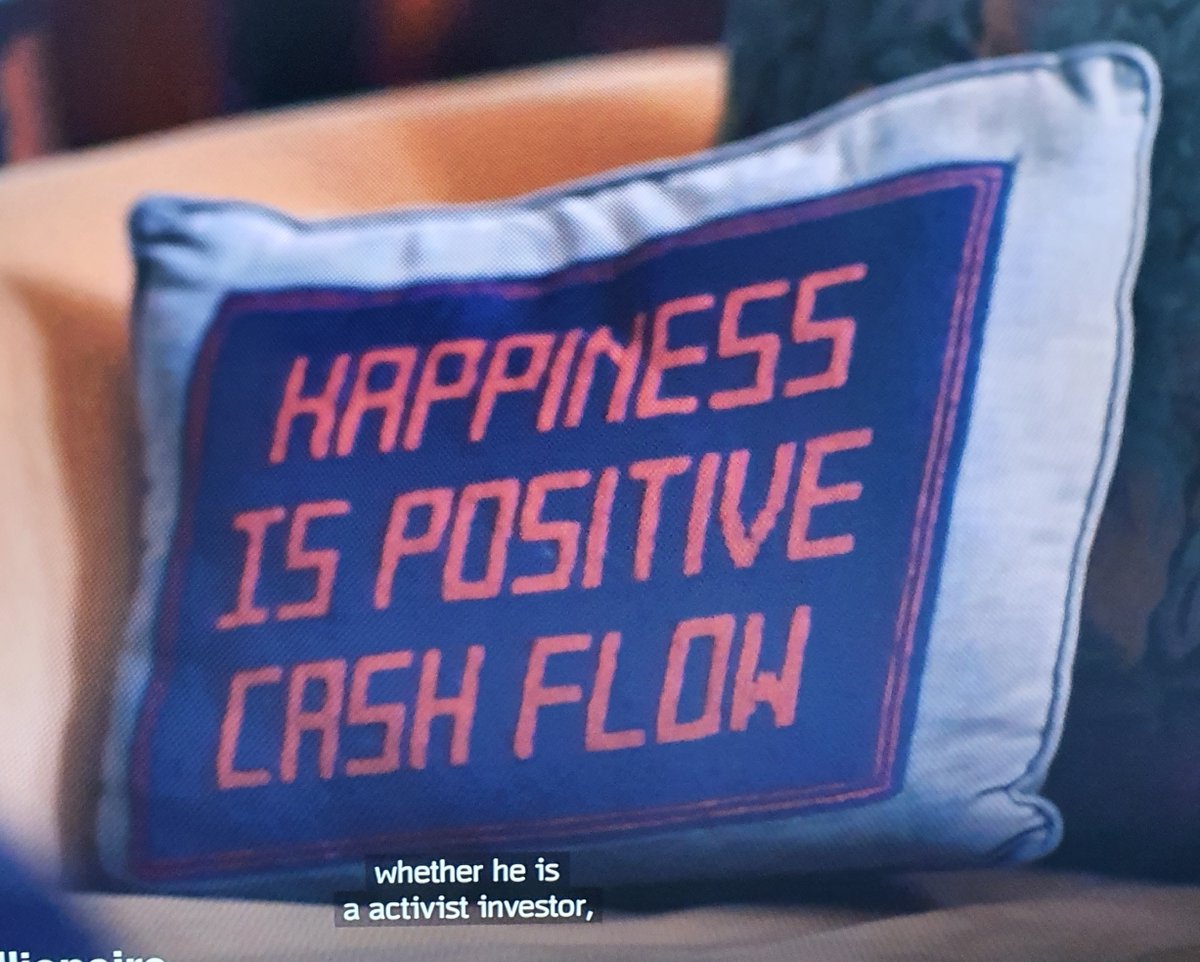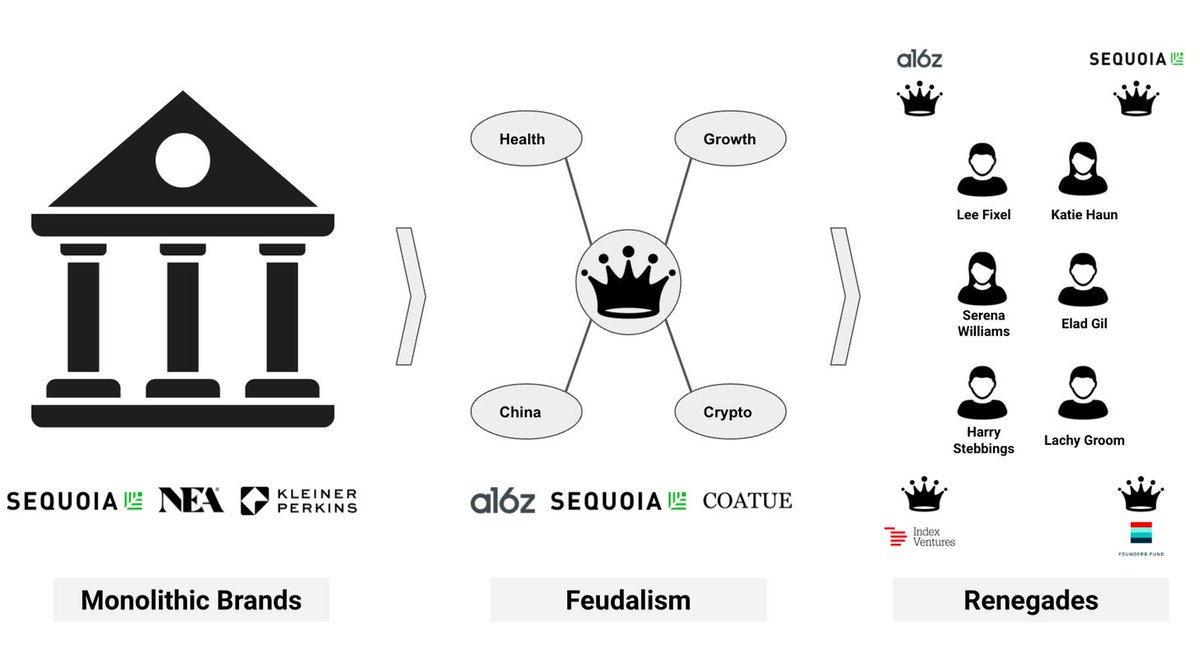
Stanley Druckenmiller's speech at the Lost Tree Club is an evergreen read:
"I had an incredible passion, and still do, for the business. The thought that every event in the world affects some security price somewhere ... to try and figure out what the next puzzle was..."
"I had an incredible passion, and still do, for the business. The thought that every event in the world affects some security price somewhere ... to try and figure out what the next puzzle was..."

"I get to gamble for a living and channel it through the markets instead of illegal activity. That was just sort of nirvana for me that I could constantly be making these bets, watch the market moving, and get my grades in the newspaper every day." 

"If you’re early on in your career and they give you a choice between a great mentor or higher pay, take the
mentor every time. It’s not even close."
mentor every time. It’s not even close."

"Don’t even think about leaving that mentor until your learning curve peaks. There’s just nothing to me so invaluable in my business, but in many businesses, as great mentors."
"Bulls make money, bears make money, and pigs get slaughtered. I’m here to tell you I was a pig."
"The mistake I’d say 98 percent of money managers and individuals make is they feel like they got to be playing in a bunch of stuff."
"The mistake I’d say 98 percent of money managers and individuals make is they feel like they got to be playing in a bunch of stuff."

Druck got promoted quickly.
“Now, do you know why I’m doing this? For the same reason they send 18-year-olds to war. You’re too dumb, too young, and too inexperienced not to know to charge."
“Now, do you know why I’m doing this? For the same reason they send 18-year-olds to war. You’re too dumb, too young, and too inexperienced not to know to charge."

"I think a big secular bull market’s coming. We’ve all got scars. We’re not going to be able to pull the trigger. So, I need a young, inexperienced guy. But I think you’ve got the magic to go in there and lead the charge.”
This immediately played out during the Iranian revolution.
"I go well, this is easy. Let’s put 70% of our money in oil stocks and let’s put 30% in defense stocks and sell all bonds. There was a lot of luck involved. It was my youth and my inexperience. was ready to charge."
"I go well, this is easy. Let’s put 70% of our money in oil stocks and let’s put 30% in defense stocks and sell all bonds. There was a lot of luck involved. It was my youth and my inexperience. was ready to charge."

"He taught me two things:
Never, ever invest in the present. You have to visualize the situation 18 months from now, and whatever that is, that’s where the price will be, not where it is
today.
If you invest in the present, you’re going to get run over."
Never, ever invest in the present. You have to visualize the situation 18 months from now, and whatever that is, that’s where the price will be, not where it is
today.
If you invest in the present, you’re going to get run over."

And:
"Earnings don’t move the overall market; it’s the Federal Reserve Board. It’s liquidity that moves markets."
"Earnings don’t move the overall market; it’s the Federal Reserve Board. It’s liquidity that moves markets."
"By the early to mid-‘80s commodities were having dramatic moves, currencies were having big moves, bonds were having big moves."
"I’d rather have a menu of assets to choose from to make my big bets and particularly since a lot of these assets go up when equities go down"
"I’d rather have a menu of assets to choose from to make my big bets and particularly since a lot of these assets go up when equities go down"

"When I went over to work for George Soros, my idea was I was going to get my PhD in macro portfolio manager and then leave in a couple years or get fired like the nine predecessors had."
"I was as proficient as he was, maybe more so, in predicting trends."
"I was as proficient as he was, maybe more so, in predicting trends."

"That’s not what I learned from George. But I learned something incredibly valuable, and that is when you see it, to bet big. For those who follow baseball, I had a higher batting average; Soros had a much bigger slugging percentage."
Druck putting in the work, getting no respect😭
"George was running his personal account ... he was focusing 90% of his time on philanthropy, not really working day to day. A lot of the time he wasn’t even around. ...
"George was running his personal account ... he was focusing 90% of his time on philanthropy, not really working day to day. A lot of the time he wasn’t even around. ...

... and I’m a competitive person, frankly embarrassing, that in his personal account working about 10% of the time he continued to beat Duquesne and Quantum.
It’s because he was taking my ideas and he just had more guts. He was betting more money with my ideas than I was."
It’s because he was taking my ideas and he just had more guts. He was betting more money with my ideas than I was."
Breaking the Pound.
"My analyst called me up, they were going into a recession because of interest rate increases"
"I wake up and the head of the Bundesbank has given an editorial ... basically said the British pound is crap and we don’t want to be united with this currency"
"My analyst called me up, they were going into a recession because of interest rate increases"
"I wake up and the head of the Bundesbank has given an editorial ... basically said the British pound is crap and we don’t want to be united with this currency"

“George, I’m going to sell 5bn worth of pounds, we’ll have 100% of the fund in this one trade.
He starts wincing like what is wrong with this kid."
He starts wincing like what is wrong with this kid."

“That is the most ridiculous use of money management I ever heard. What you described is an incredible one-way bet. We should have 200%of our net worth in this trade. Do you know how often something like this comes around? Like once in 20 years. What is wrong with you?”
"80% of the big, big money we made was in bear markets and equities because crazy things were going on in response to what I would call central bank mistakes during that 30-year period" 

1999 & 2000.
"I got the bright idea to short internet stocks ... down 15% on the year"
"I talked to some 22-year-old with Asperger’s. Whoever it was, they convinced me about this new tech boom that was going to take place"
"We end up on the year like 35%"
"I got the bright idea to short internet stocks ... down 15% on the year"
"I talked to some 22-year-old with Asperger’s. Whoever it was, they convinced me about this new tech boom that was going to take place"
"We end up on the year like 35%"

"I go into Soros’s office and I say I’m selling all the tech stocks, selling everything. This is crazy."
"I didn’t fire the two gun slingers. they started making 3% a day and I’m out. It is driving me nuts. I mean their little account is like up 50% on the year."
"I didn’t fire the two gun slingers. they started making 3% a day and I’m out. It is driving me nuts. I mean their little account is like up 50% on the year."

"I had to play. I couldn’t help myself I pick up the phone finally.
I think I missed the top by an hour. I bought billion worth of tech stocks, and in six weeks I had left Soros and I had lost billion in that one play."
I think I missed the top by an hour. I bought billion worth of tech stocks, and in six weeks I had left Soros and I had lost billion in that one play."
What to look for in great money managers.
"Number one, passion. They’re going to work 24/7, and you’re competing against them. If you’re with one of the lazy people or one of the people that are just doing it for the money, you’re going to get run over by those people."
"Number one, passion. They’re going to work 24/7, and you’re competing against them. If you’re with one of the lazy people or one of the people that are just doing it for the money, you’re going to get run over by those people."

"When I look at their record, I immediately go to the bear markets and see how they did.
I want to make sure I’ve got a money manager who knows how to make money and manage money in turbulent times, not just in bull markets."
I want to make sure I’ve got a money manager who knows how to make money and manage money in turbulent times, not just in bull markets."
"Every great money manager I’ve ever met, all they want to talk about is their mistakes."
"You want someone who’s absolutely obsessed with the business, with winning. They’re not in it for the money. And obviously integrity. Passion without integrity leads to jail"
"You want someone who’s absolutely obsessed with the business, with winning. They’re not in it for the money. And obviously integrity. Passion without integrity leads to jail"
• • •
Missing some Tweet in this thread? You can try to
force a refresh









